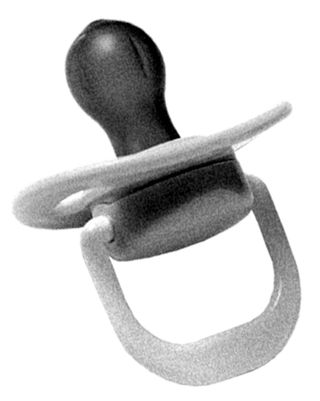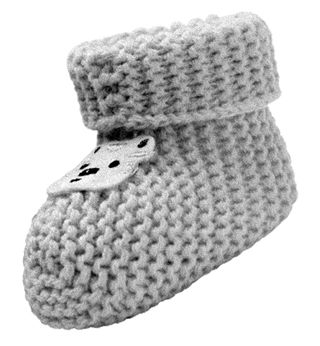In the fall of 2020—seven months into the pandemic—my husband and I decided to get a dog. Many people were happy for us, though others urged us to proceed with caution. “It will destroy your clothes and poop all over your apartment,” they said while forecasting months of sleep deprivation and astronomical vet bills. Most depressing was the belief that a dog was just a temporary stand-in for a baby—a drain on our resources that we’d eventually lose interest in long before he or she died, inevitably from cancer.
When I then got pregnant with said baby—our first—last November, I began consuming a lot of content about motherhood that followed a similar refrain of “buyer beware.” Much of this is for very good reason. Relative to the rest of the developed world, parenting in the United States tends to be a more stressful and precarious experience marked by prohibitively expensive childcare, minimal parental leave, and heightened anxiety and depression—particularly for mothers, a huge portion of whom are forced to leave the workforce. Added to new pressures surrounding “intensive parenting,” the country’s youth mental health crisis, and existential concerns about climate change, it is no wonder why 62 percent of American parents say that parenthood is at least somewhat harder than they expected it to be.
Over the past decade, this mismatch between expectation and reality has led to a rich and essential dialogue about the stresses of motherhood, including how these stresses are shaped by geography, class, and race. Yet recently, some have begun to question whether the pendulum has swung too far. For prospective moms today, the general consensus seems to be that motherhood is a miserable experience that has less to do with structural issues around privilege and access—consistently it is white, wealthy women who report the highest levels of dissatisfaction with motherhood—and more to do with what one writer calls “the quotidian torture of parenthood”: the sleepless nights, the diapers, the clutter, and the hours of mind-numbingly boring play.
This hyper-emphasis on the most draining aspects of motherhood has made it “genuinely difficult to find mainstream portrayals of moms who are not stressed to the brink, depressed, isolated, or increasingly resentful,” writes Vox’s Rachel Cohen. Despite a desire among millennials to have kids, the country’s birth rate has plummeted since 2007. At the same time, pregnant millennials are feeling more confused and scared than ever. My own first trimester felt like one continuous panic attack fueled by reports of primal scream gatherings for moms living up and down the East Coast. In those moments when I allowed myself to lean into my excitement and longing for my baby, I felt conflicted and guilty, as though I was sabotaging social progress or my own professional future.
Enter Instagram: that strange parallel universe where motherhood is often made to look blissful, shiny, and uncomplicated. Over the course of my pregnancy, I was served hundreds of reels about everything from swaddling to tummy time, alongside ads for $1,500 strollers, “smart” bassinets, and costly Montessori play kits. In her book Momfluenced: Inside the Maddening, Picture-Perfect World of Mommy Influencer Culture, author Sara Petersen tells the story of the women behind many of these ads— “momfluencers” who commodify the experience of motherhood, convincing moms-to-be that certain products will make their lives better. Health-conscious, impeccably dressed, and usually white, these momfluencers project a very specific version of motherhood marked by Hill House Nap dresses, sourdough recipes, immaculate countertops, and artisanal cookware. Combining imagery and storytelling, their work positions them as authors and creators, elevating labor that has previously been thankless and invisible.
But momfluencing, Petersen tells us, is also incredibly dangerous. No matter how real or “unfiltered” they profess to be, every momfluencer engages in a type of performance that equates good motherhood with a certain aesthetic, glossing over—and at times denying—the very real challenges of being a parent in the United States. As it feeds off a parasocial illusion of intimacy, momfluencing can make us feel bad if we don’t measure up. In its most extreme cases, it can idealize regressive notions of womanhood, deploying a neo-Laura Ingalls Wilder aesthetic as a visual proxy for alt-right conservatism.
For anyone on social media, momfluencers have become inescapable. For years, I have followed several—many before they even became moms. With each post, I have been granted a window into their children’s lives, occasionally in ways that have made me profoundly uncomfortable seeing as no child has offered their consent to such public documentation.
And yet—now that my daughter is here—I find myself feeling enormously grateful to the moms I follow on Instagram. Visually, my life looks nothing like theirs. Most days, I walk around with mismatched socks, unbrushed hair, and baggy clothes to hide the pregnancy weight that won’t come off; meanwhile, my house is a pigsty of teething toys, dirty dishes, unfolded laundry and, yes, unvacuumed dog hair. Despite it all, I am the happiest I have ever been in my life. Let it be known: There are parts of motherhood that are really, really hard. But after years of fearing what motherhood might take away, I am surprised—even shocked—at how life-affirming the experience can be. Along with her furry 80-pound “sister,” my daughter has taught me so much about patience, gratitude, humility, and imagination. Just looking at her can bring tears to my eyes, filling me with a love that stretches far beyond the confines of our own little family.
I would be lying if I said that the moms I follow on Instagram had nothing to do with this. As the first of my friends to get pregnant, I looked to their posts as not only a source of information, but also a real-life example of maternal joy. Now that I am a mom myself, their pictures inspire me to relish certain moments. Though I have made the decision not to post pictures of my daughter’s face on social media, the practice of taking her picture has been a way for me to savor the precious and make time stand still. With my phone in hand, I am able to capture those things about motherhood that can be so hard to put into words—that “tenderness” that is so often misread as reductive, boastful, maudlin, toxically positive, or karmically foolish.
It is not lost on me that others’ emphasis on the miseries of motherhood made me wait to have kids, and that this waiting—along with an amazing partner—has undoubtedly made me a happier mom. It is also not lost on me that I am early on in this journey, and that the coming years will bring new epiphanies, grievances, and hardships. Certainly, conversations about these hardships are imperative. Still, I wonder whether leading with too much dread has the potential to do more harm than good. It has been suggested that such dread is necessary for prospective moms given that the joy of motherhood is already “well-established” and therefore goes without saying. But that’s just it—it doesn’t go without saying. At least it didn’t for me.
For years, the way we’ve been talking about motherhood has painted all sane mothers as miserable and all happy mothers as stupid, brainwashed, loaded, or fake. But there has to be a better way. In addition to giving moms more support, we need to empower women from all backgrounds to honor the ways motherhood can be hard, as well as the ways it can be beautiful, miraculous, and revolutionary.
Momfluencers did that for me, and for that, I will always be thankful.


